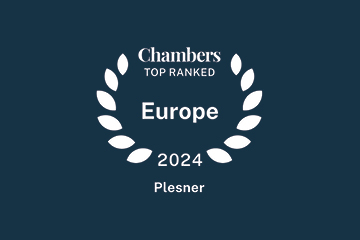The Danish Public Contracts Appeals Board - Contracting entity did not reduce the previous supplier's competitive advantage as far as possible
In its decision of 6 May 2020, the Danish Public Contracts Appeals Board found that a contracting entity did not reduce the previous supplier's competitive advantage as far as possible, as the contracting entity had refused, with reference to the personal data rules, to disclose relevant address details which were in the possession of the previous supplier. According to the Appeals Board, the contracting entity would, in compliance with the personal data rules, have been able to reduce the previous supplier's competitive advantage in a simple and reasonable manner and without providing the specific addresses.
Brief summary of the case
On 14 February 2020, the municipality of Næstved ("NK") launched a public procurement procedure under the Danish Act on Public Procurement concerning five contracts relating to special-purpose driving of children with special needs to school or day-care centres.
It was stated in the contract documents that driving was to take place between the children's officially registered addresses and their school/day-care centre, that the supplier was to plan the routes but that it was a requirement that the total travel time for the individual child must not exceed 60 minutes, and that payment would be based on a "price per kilometre per passenger for the shortest direct route by car between in/out address".
During the procurement procedure, several tenderers requested details about the number of children, their addresses, times of arrival and collection etc. In that connection it was mentioned that the previous supplier was in possession of such information and would therefore have an unlawful competitive advantage if the details were not disclosed to the other tenderers, as they were essential for the tenderers' drawing up of tenders. However, NK refused to disclose the information in question with reference to the personal data rules.
Already before the contract award decision, Danish Passenger Transport ("DTP"), an industry association for bus and taxi owners, submitted a complaint to the Danish Public Contracts Appeals Board. DTP claimed that NK had disregarded the principle of equal treatment in section 2 of the Danish Act on Public Procurement by having refused to disclose the information requested and had thus not reduced the previous supplier's competitive advantage as far as possible.
DTP further claimed that NK had disregarded section 137(1) of the Act as NK had not stated in the contract notice that the voluntary exclusion grounds in section 137(1)(i-vi) of the Danish Public Procurement Act applied but merely stated so in the general conditions.
The decision made by the Danish Public Contracts Appeals Board
The decision concerns the question as to whether the complaint is to have suspensory effect, which implies eg that, on an initial analysis, "there is something" to the complaint (fumus boni juris). The Appeals Board found that there were indications that both claims submitted by DPT would be upheld and that there were also indications that the contract award decision would be annulled as a consequence.
As for the claim relating to the previous supplier's competitive advantage, the Appeals Board established, first, that in connection with the organisation of a procurement procedure the contracting entity is obliged to reduce the potential advantage of the previous supplier.
The Complaints Board next stated that due to that the calculation model fixed (price per kilometre per passenger for the shortest direct route by car between in/out address) and the requirement that the total travel time of the individual child must not exceed 60 minutes, it was essential for the tenders to know the addresses of the children who were comprised by the arrangement.
As this information was not disclosed to the tenderers during the procurement process and only the previous supplier was informed of it, the Appeals Board found that the previous supplier had had a competitive advantage compared to the other tenderers. The fact that the previous supplier had not specifically offered the lowest price for any of the contracts did not change the Appeals Board's assessment of this.
Accordingly, NK was obliged to reduce the previous supplier's advantage as far as possible. In that connection the Board of Appeal stated that it was uncontested that it would be contrary to the personal data rules to publish the addresses of the children in question. However, the Appeals Board found that NK could, in compliance with the personal data rules, have reduced the previous supplier's competitive advantage in a simple and reasonable manner and without providing the specific addresses. By not having done so, NK had disregarded the principle of equal treatment in section 2 of the Danish Act on Public Procurement.
As for the claim of the omission to disclose the voluntary exclusion grounds in the contract notice, the Appeals Board pointed to the fact that it follows from section 137(1) of the Danish Public Procurement Act that the ordering entity must state in the contract notice whether one or several of the voluntary exclusion grounds apply during the procurement. Accordingly, by not having done so, NK had also infringed section 137(1) of the Danish Act on Public Procurement.
Plesner's comments
This decision underlines that an ordering entity is obliged to reduce the previous supplier's competitive advantage as far as possible. In that connection it appears from the decision that a contracting entity cannot just omit to disclose information with reference to the personal data rules. If personal data are involved, a contracting entity should consider whether it is possible to disclose the relevant information in anonymous or similar form in order to reduce the previous supplier's advantage as far as possible by doing so.
In addition, the decision further underlines the importance of an ordering entity being aware of and ensuring that the information to be provided in the contract notice according to the Danish Act on Public Procurement is actually included in the notice, regardless of whether it is also included in the tender specifications.
The decision specifically concerns the voluntary exclusion grounds but the Danish Act on Public Procurement specifies a number of other information that is also to be included in the contract notice, for instance the minimum requirements applied by the contracting entity when assessing applicants' or tenderers' suitability in terms of economic/financial and technical/professional capacity.
Read the decision (in Danish) here






